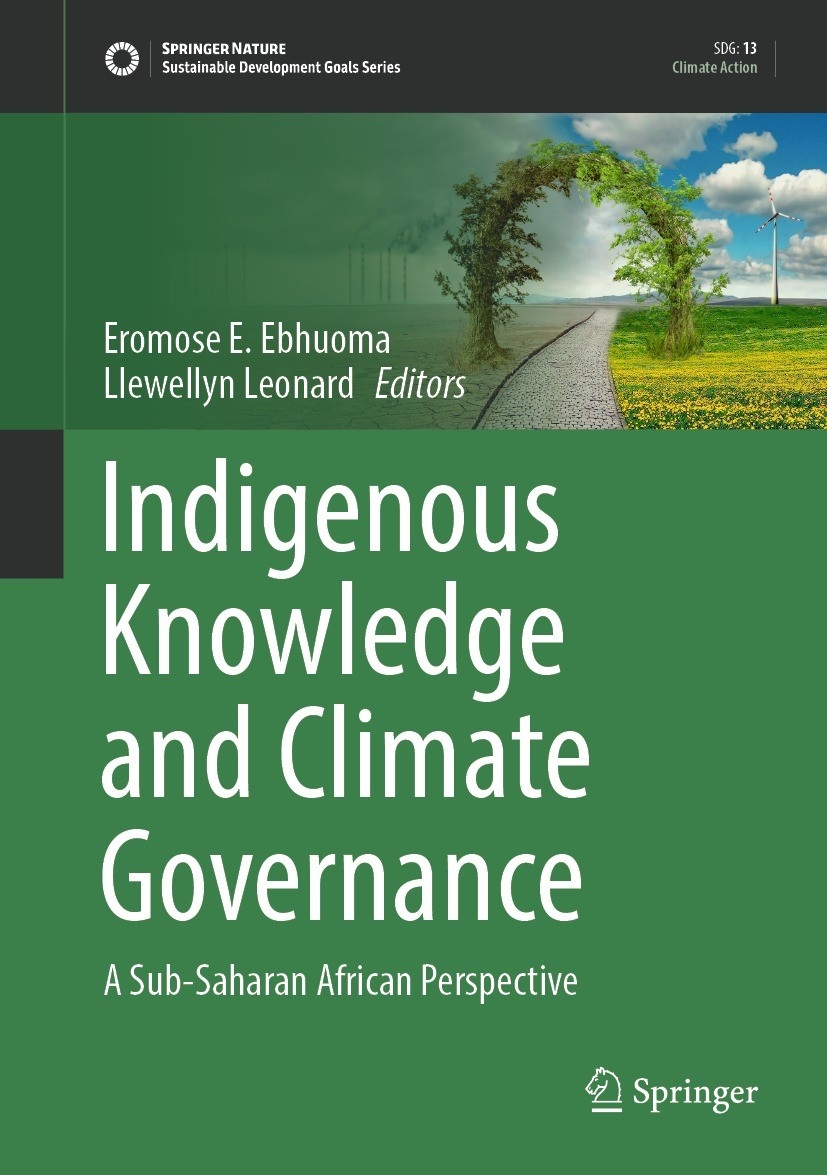Integration of Indigenous Knowledge Systems in Zimbabwe’s Climate Change Policy


Dr Tariro Kamuti, GRG research fellow, argues that Indigenous knowledge systems (IKS) constitute a strong integral part of the efforts to tackle the climate crisis in developing countries. His chapter Integration of Indigenous Knowledge Systems in Zimbabwe’s Climate Change Policy is published in Indigenous Knowledge and Climate Governance. Sustainable Development Goals Series, a recent Springer publication.
Abstract:
Indigenous knowledge systems (IKS) constitute a strong integral part of the efforts to tackle the climate crisis in developing countries. Zimbabwe is a signatory to international climate change-related agreements and protocols that embrace IKS as part of its overall strategy to confront climate change. The country’s National Climate Policy seeks to provide an overall framework for the implementation of a roadmap for some basic principles and guidance under which the National Climate Change Response Strategy will be implemented. The purpose of this chapter is to explain the policy processes and governance contexts involved in the integration of IKS into the climate change policy of Zimbabwe. The aim is to understand the role IKS play in Zimbabwe’s climate change policy. The paper adopts an institutional approach to analyse the governance of climate change responses in Zimbabwe. Stakeholder and institutional mapping and analysis, coupled with analysis of documentary evidence, were used to obtain secondary data. The findings suggested that although Zimbabwe started to integrate IKS into its climate policy, there is a need for further refinement in specifying tangible actions in efforts to combat climate change, thus helping to achieve targets set under the 13th Sustainable Development Goal.
Citation:
Kamuti, T. (2022). Integration of Indigenous Knowledge Systems in Zimbabwe’s Climate Change Policy. In: Ebhuoma, E.E., Leonard, L. (eds) Indigenous Knowledge and Climate Governance. Sustainable Development Goals Series. Springer, Cham. https://doi.org/10.1007/978-3-030-99411-2_12
